#Antonio Damasio
Explore tagged Tumblr posts
Text
summer rain
* * * *
“The immune system, the hypothalamus, the ventro-medial frontal cortices, and the Bill of Rights have the same root cause.” ― Antonio Damasio
#rain#trees#Antonio Damasio#immune system#hypothalamus#ventro-medial frontal cortices#Bill of Rights#natural processes
17 notes
·
View notes
Text
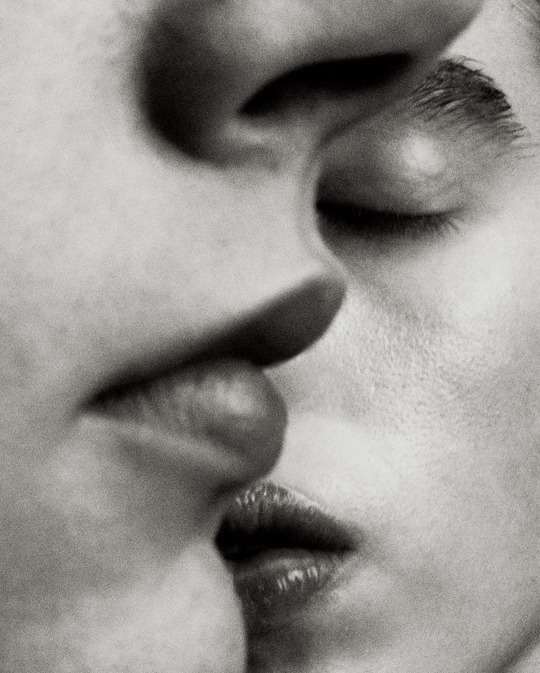
"Being understood", 2024 - by Nanda Hagenaars (1988), Dutch
* * * *
« Sometimes we use our minds not to discover facts, but to hide them. We use part of the mind as a screen to prevent another part of it from sensing what goes on elsewhere. […] One of the things the screen hides most effectively is the body, our own body, by which I mean the ins and outs of it, its interiors. Like a veil thrown over the skin to secure its modesty, the screen partially removes from the mind the inner states of the body, those that constitute the flow of life as it wanders in the journey of each day.
The alleged vagueness, elusiveness, and intangibility of emotions and feelings are probably symptoms of this fact, an indication of how we cover the representation of our bodies, of how much mental imagery based on nonbody objects and events masks the reality of the body. Otherwise we would easily know that emotions and feelings are tangibly about the body. Sometimes we use our minds to hide a part of our being from another part of our being. »
— António Damásio, The Feeling of What Happens: Body and Emotion in the Making of Consciousness exhaled-spirals
#exhaled-spirals#Antonio Damasio#The Feeling of What Happens: Body and Emotion in the Making of Consciousness#quotes#Nanda Hagenaars#bodymind#emotion#feeling#felt sense#Body Alive
8 notes
·
View notes
Text
We aren't thinking machines that feel; rather, we are feeling machines that think.
Antonio Damasio
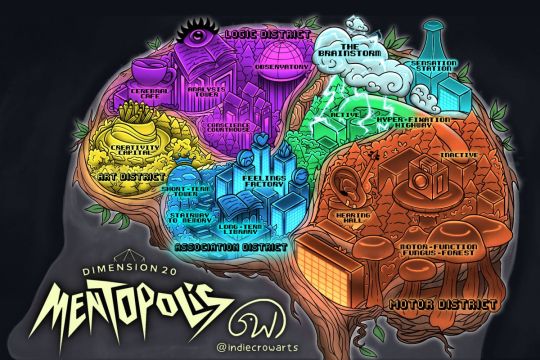
11 notes
·
View notes
Text
Attention as the Sculptor of Reality: A Neurophilosophical Inquiry into Awareness, Culture, and Self-Transformation
The nature of attention determines the structure of our lived world. Attention is not a passive receptacle through which reality merely passes but an active force shaping how experience is constituted, knowledge is structured, and the self is constructed. Photo by Tara Winstead on Pexels.com In both Buddhist and Stoic traditions, attention occupies a central psychological and ethical role, one…
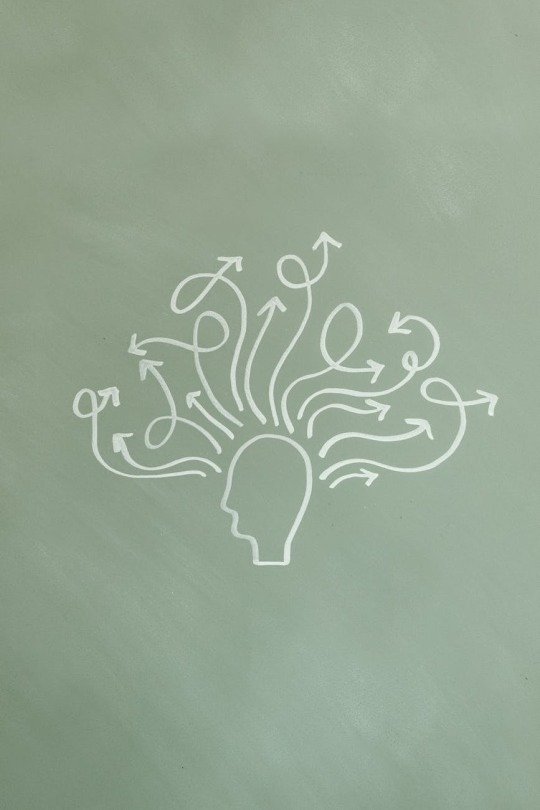
View On WordPress
#Anatta#Antonio Damasio#attention#Bernard Stiegler#Buddhism#Buddhist philosophy#buddhist wisdom#Epictetus#epistemology#Francisco Varela#Galen Strawson#Iain McGilchrist#logos#Marcus Aurelius#Maurice Merleau-Ponty#mindfulness#phenomenology#Philosophy#Pierre Hadot#prosochē#Raffaello Palandri#reason#saṃskāra#saṅkhārā#Sati#self-creation#Smṛti#Stoic philosophy#Stoic wisdom#Stoicism
1 note
·
View note
Text
Antonio Damasio、自传式自我、 AI
秦轩和我提到有人推荐了 Antonio Damasio 这个人的研究。我就提了四个问题给 AI 1. 介绍一下 Antonio Damasio 这个人 2. 详细讲讲他对公共领域有关情感、道德和社会政策的探讨 3. 介绍一下《感���到的自我》的核心观点,论述过程,每个章节的内容,以及重要创新和人们的评价 4. 有什么其他人对他观点的论述介绍的书籍吗?更合适作为初级读物入门的 觉得 deepseek 确实很不错了。但 Chatgpt 还是不可替代。所以这每月例钱还是不能少。 发这个当然主要是因为 Antonio Damasio…
0 notes
Text
Antonio Damasio – Olan Biteni Hissetmek (2024)
Yenilikçi bilimsel dü��ünme şekli ve net ifade biçimiyle tanınan Antonio Damasio, bu kitabında en derinlerde yatan soruları ve yanıtlarını ele alarak bilinç konusuna yeni bir anlayış getiriyor: Ne bildiğimizi nasıl biliyoruz? Bilinç kazanmış insan zihninde benlik algısı nasıl oluşuyor? Beyin hasarı bulunan hastalara yıllar boyunca çareler sunan yetenekli tıp doktoru Damasio, ‘Descartes’ın…

View On WordPress
0 notes
Text
Emoções: aliadas ou adversárias?
Neste texto, exploramos a influência das emoções na nossa vida e como podem, em alguns casos, nos sabotar. Com base nas ideias do Dr. Antonio Damásio, discutimos a diferença entre emoções primárias e secundárias e como elas nos afetam.
Prefere ouvir? Dê o play! Você já se perguntou como suas emoções afetam as escolhas que fazemos diariamente? Ou como, em certas ocasiões, as emoções parecem nos desviar do que realmente queremos? As emoções são parte essencial de nossas vidas. As emoções estão presentes em cada diálogo, cada decisão, cada interação que temos. Elas influenciam nosso comportamento e a maneira como interpretamos…

View On WordPress
0 notes
Text
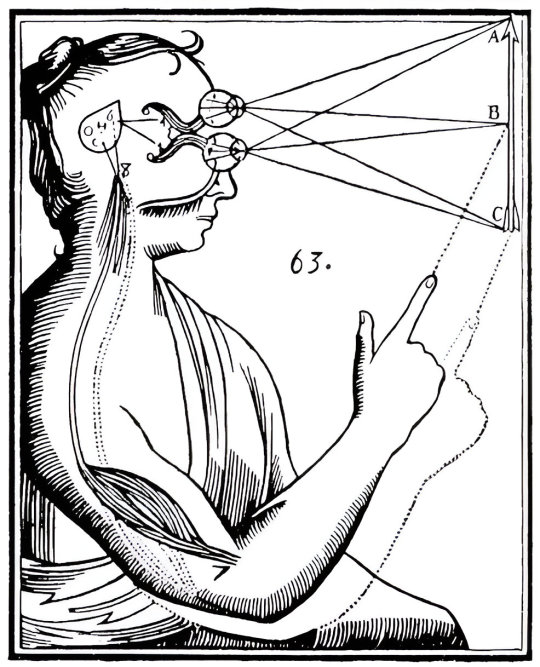
«La idea cartesiana de una mente incorpórea puede haber sido muy bien la fuente –a mediados del siglo veinte- de la metáfora de la mente como software. De hecho, si la mente pudiera separarse del cuerpo, podría ser entendida sin recurrir a la neurobiología y sería innecesario verse influido por conocimientos de neuroanatomía, neurofisiología y neuroquímica. Es interesante, y paradójico, que muchos científicos de la cognición –que creen poder investigar la mente y no necesitar la neurobiología- no se consideren dualistas.»
Antonio R. Damasio: El error de Descartes. Editorial Andrés Bello, págs. 278-279. Santiago de Chile, 1996.
TGO
@bocadosdefilosofia
@dias-de-la-ira-1
#damasio#antonio r. damasio#el error de descartes#descartes#sofware#harware#mente#cerebro#cuerpo#cartesianismo#teoría computacional de la mente#computacionalismo#fisicalismo#neurociencia#neurocientíficos#neurocientistas#organismo#dualismo#descorporificación#neurobiología#neuroanatomía#neurofisiología#neuroquímica#entonro#entorno físico#entorno social#medio social#actividad cerebral#teo gómez otero
2 notes
·
View notes
Text
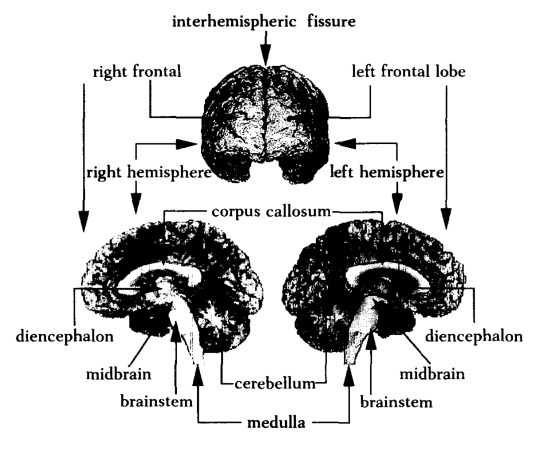
Antonio Damasio, Descarte's Error: Emotion, Reason, and the Human Brain
544 notes
·
View notes
Text
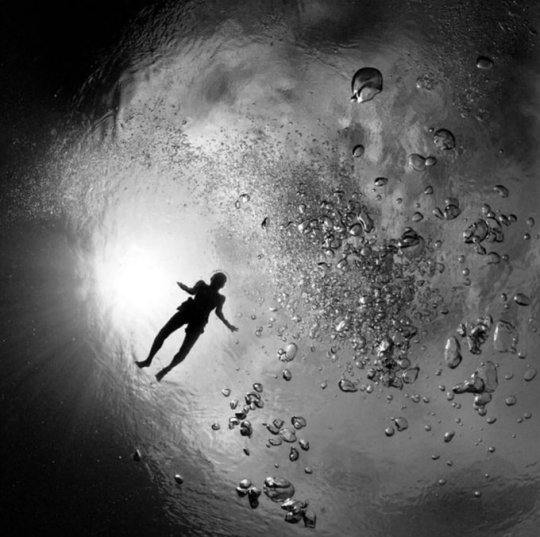
Hengki Koentjoro :: @hengki24 :: © 2024 ➤ Liquid Planet
* * * *
“The self is a repeatedly reconstructed biological state.” ― Antonio R. Damasio, Descartes' Error: Emotion, Reason and the Human Brain
#liquid planet#Hengki#Koentjoro#Antonio R. Damasio#Descartes' Error#mind/brain#biology#quotes#the self
9 notes
·
View notes
Text

“I do not see emotions and feelings as the intangible and vaporous qualities that many presume them to be. Their subject matter is concrete, and they can be related to specific systems in body and brain, no less so than vision or speech.”
― Antonio R. Damasio, Descartes’ Error: Emotion, Reason and the Human Brain
6 notes
·
View notes
Text
Welcome ☽
I made this account to encourage me to put conscious effort into artistic expression and exploring myself.
Open to conversation or being mutuals
19
Critical theist but interersted in discourse about metaphysical truth and religion.
Philosphy, classical and contemporary literature: big fan of Frederick Nietzche, David Benatar, Albert Camus, Sylvia Plath, Virginia Wolfe, Ursala K. Le Guin (The Earthsea Series), Buddhist philosophy, David Hume, Franz Kafka. I absolutely ADORE Chimamanda Ngozi Adiche (Americanah, Half of a yellow sun, We should all be feminists).
Hopelessly obsessed with music: I play piano and i'm a big fan of Pink floyd, Mitski, Radiohead, Nirvana, Sade, Maxwell, Fiona Apple, PJ Harvey, Bjork, Lorde, Khalid, Beach House, my bloody valentine, Prince and many more. Here's my Albumoftheyear profile if you really wanna see what my music taste is like.
Art-House Cinema and shows: Huge movie junkie, I enjoy foreign film, Wong Kar Wai, Erih Rohmer, David FIncher, Scorsese, Krzysztof Kieślowsk, Philippe Garreli are some of my favourite directors. Bones and all, Black Swan, Happening, The dreamers, The perks of being a wallflower, Paris 13th district, The Bourne Trilogy are some modern stuff i love. I love cinema in general anyways, i'll still indulge transformers, twilight and the rest, as long as i enjoy it. I enjoy, Game of thrones, Mtv downtown, Daria, normal people, fleabag, dark.
In love with science: I particularly enjoy the works of Antonio Damasio and Michael Gazzaniga.
Massive nostalgia junkie: will love to talk about old or forgotten cartoons, music, tech, books etc Captain Underpants, Enid Blyton books, Diary of a wimpy kid .
I enjoy art and occasionally make digital art and animation myself.
#perks of being a wallflower#writing#prose#cinema#writers on tumblr#dark academia#downtown#mitski#krzysztof kieślowski#radiohead#artsy#science#bones and all#chimamanda ngozi adichie#franz kafka#sylvia plath#albert camus#wong kar wai#friedrich nietzsche#nirvana#bjork#philosophy#nostalgia#mitskileaks#cinephile#feralmelancholia
31 notes
·
View notes
Text
Why Am I This Way - Psychology Answers
Note: One more <3 hope it helps guys
“How Am I” Section
“Why is it always me? Why does it always happen to me?”
What happens in the unconscious brain:
thi is a question that we have all asked ourselves at least once in our life, but for some people with more pessimist self image and personality, this becomes recurrent and a defense whenever an event happens in their life
In psychology, this is a type of negative thought that comes from depressive symptomatology. it starts with “Bad things are always happening”, to “This happens only to me and never the others'' and finished with “it's probably my fault”
the person tends to have a very low self esteem and these thoughts quickly go from “It’s not that the world is a bad place, is that i am useless and cannot do things right”
this typeof thought really comes from the inner guilt, shame and depression
whereas the act of always blaming others and the world comes from underlying unconscious anger and injustice.
in these moments, feelings become so hard to process and often, we forget that we are people who can rationalize things
but of course everyone needs to go at their own pace
Damasio, showed that our brain is influenced strongly by emotions compared to rationality. we always process the emotions before (unless there’s an underlying condition in the prefrontal lobe that disturbs the emotional processing of the brain).
Thankfully, the pessimistic person is wrong. There's nothing wrong with them. it's simply your brain processing emotions first. now you have to simply embarrass those before rationalizing the event and engage in positive thinking
if you are interested in more of this topics you can check the works of Martin Seligman, Antonio Damasio and Emmy Van Deurzen
So what can we do?
It seems totally stupid but trying to become more positive by shifting the way we think and slowly using that in our daily life.
So okay, something bad happened. instead of thinking “fuck, its my fault, i a useless, it halways happens to me”, try with “Okay this is a bad thing that happened, it makes me sad, but it also provides experience so i know what to do next time it happens”
By changing thought patterns into something more positive, you will be able to see your perception of the world change without the necessity of needing to be reborn again
Embrace life as it is
implies daring to welcome inevitable suffering, anxiety and guilt as an intrinsic part of existence
anxiety and guilt is something that will always accompany us in our life, but it motivate us to look deep inside of us in order to understand the authentic self and change into something more healthy
Now, you know where to work to become a better version of yourself
47 notes
·
View notes
Text
When it comes to making solid decisions, emotions aren't inherently bad. They can be useful markers for making the correct choice. Antonio Damasio, a neuroscientist at the University of Southern California, has found that the absence of emotion the actual clinical inability to experience emotion caused by lesions to an area of the brain called the VMPFC, the ventromedial prefrontal cortex can cause people to go broke on a gambling task. Not caring about the negative emotional effects of large losses, they don't learn to distinguish the better decisions and instead go for the larger wins and larger swings. Likewise, Norbert Schwarz and Gerald Clore, social psychologists who spent multiple decades studying the varying effects of mood on our thoughts and outcomes, have argued that in the right context, emotions can be powerful drivers of correct choice: the emotion just needs to be integral to the decision, rather than incidental to it. Touching a hot stove makes you feel pain and anger - and you avoid touching the stove in the future. By anticipating the negative emotion caused by pain, you make a more prudent choice the next time around. We experience emotions for a reason, and the goal is not to stop experiencing them. Instead, the goal is to learn to identify our emotions, analyse their cause, and if they're not actually part of our rational decision process - and more often than not, they aren't dismiss them as sources of information.
Maria Konnikova, The Biggest Bluff
11 notes
·
View notes
Text

Antonio Damasio, Descarte's Error: Emotion, Reason, and the Human Brain
4 notes
·
View notes
Text
Zoomposium with Professor Dr. Mark Solms: "Expedition to the sources of consciousness. The feelings as the embodiment of consciousness."

1. Information about the person and his scientific research work
This time we had the great honor and pleasure of talking to the very well-known South African neuroscientist and psychoanalyst Mark Solms, who has continued and successfully applied his own discipline, "neuropsychoanalysis" in the sense of Sigmund Freud, in another very exciting interview from our Zoomposium theme blog "Cognitive Neuroscience and Epistemology". He is "Head of the Department of Neuropsychology at Groote Schuur Hospital in Cape Town and since 2005 Professor of Psychiatry at Mount Sinai Hospital in New York, as well as editor and translator of Sigmund Freud's Complete Neuroscientific Works. Solms strives for a synthesis of neurology and psychoanalysis and was founding editor of the journal Neuro-Psychoanalysis, whose advisory board includes brain researchers such as Antonio Damasio and Wolf Singer." (https://de.wikipedia.org/wiki/Mark_Solms)
2. Interview questions: "The sources of consciousness or why Freud's emotions are still important - with Prof. Mark Solms"
1. As editor and translator of Sigmund Freud's Complete Neuroscientific Works and founding editor of the international journal "Neuro-Psychoanalysis", you can be regarded as the initiator and co-founder of a new research direction of "neuropsychoanalysis".
Let us first talk briefly about psychoanalysis. Nowadays it is perhaps more in need of explanation than in earlier times, even if its founder Sigmund Freud is still good for a bestseller (think of "Der Trafikant" by Robert Seethaler).
Malicious tongues claim that psychoanalysis is irrefutable by design, because it explains criticism of it through repression, which in turn confirms it. Dietrich Schwanitz writes in his bestseller "Bildung. Everything you need to know", Dietrich Schwanitz even writes about psychoanalysis: "It even created the problems it sold itself as the solution to."
Where does psychoanalysis stand today and what benefits can we still derive from it? Another point of criticism of psychoanalysis is its alleged lack of empirical verifiability. Sigmund Freud himself had already described his vision in his book "Entwurf einer Psychologie" (1895/1950) that the findings of psychoanalysis should also be verifiable using the methods of the natural sciences. Do you believe that this goal has been achieved through the groundbreaking results of imaging techniques in cognitive neuroscience or are we still a long way from being able to trace the psyche (emotions and affects, memory, sleep and dreams, conflict and trauma, conscious and unconscious problem-solving processes) back to the physique (neuronal activities and processes)? In "neuropsychoanalysis", you now combine the methods of brain research with ideas from psychoanalysis.
How should we imagine this and what are your research goals? 2. in your book "The Hidden Spring - A Journey to the Source of Consciousness" (2022), you try to get back to the possible "sources of consciousness" in order to offer an alternative solution to the "hard problem of consciousness":
"The hard problem of consciousness is said to be the biggest unsolved puzzle of contemporary neuroscience, if not all science. The solution proposed in this book is a radical departure from conventional approaches. Since the cerebral cortex is the seat of intelligence, almost everybody thinks that it is also the seat of consciousness. I disagree; consciousness is far more primitive than that. It arises from a part of the brain that humans share with fishes. This is the `hidden spring' of the title. Consciousness should not be confused with intelligence. It is perfectly possible to feel pain without any reflection as to what the pain is about. Likewise, the urge to eat - a feeling of hunger - need not imply any intellectual comprehension of the exigencies of life. Consciousness in its elemental form, namely raw feeling, is a surprisingly simple function."
Does this mean that we have been looking in the "wrong places" because we have always equated consciousness with cognitive (human) intelligence and have only ever located it in the cortex?
On the other hand, there are philosophers who distinguish between consciousness (in the sense of inner experience) and intelligence. Peter Bieri, for example, writes: "There are countless feedback mechanisms in an organism [that lead to intelligent behavior - A. S.] without the slightest experience: why couldn't our entire self-model be present, but no experience?"
Is consciousness a pure luxury and basically superfluous for the progress of the world? (see "zombie problem")
Shouldn't we perhaps, as suggested in your book, pay more attention to feelings and affects or also to embodiment and embeddedness when explaining the phenomenon of consciousness in order to prevent this neurocentrism in the cerebral cortex?
Is it perhaps only our anthropocentric viewpoint that blocks our access to the problem, if we always start from our human consciousness and consciousness in general is perhaps a much "simpler function": "Consciousness in its elemental form, namely raw feeling, is a surprisingly simple function."?
Or does this point of view already make you a panpsychist? 3. But if this is the case and the naturalistic principles may also apply to consciousness, would it not also be theoretically possible to simulate a form of "artificial consciousness" ("AC/DC = artificial consciousness/digtital consciousness") on a machine that not only has a corresponding algorithm, but also sensorimotor inputs, backpropagation for its predictive coding/procsesing and affective feedback loops?
Based on Antonio Damasio's "Theory of Consciousness", could it perhaps be possible to develop a corresponding "construction manual for artificial consciousness" from the 3 stages for the development of consciousness: 1. "fundamental protoself", 2. "core consciousness" and 3. "extended consciousness", if the feelings and affects of unsupervised and reinforcement learning of machines are taken into account accordingly?
4. A paper "How and Why Consciousness Arises: Some Considerations from Physics and Physiology" (2018) emerged from your collaboration with Karl Friston, the renowned British neuroscientist at University College London, who works on mathematical models for imaging techniques in cognitive neuroscience and brain mapping.
In this and in another article "The Hard Problem of Consciousness and the Free Energy Principle" (2019), you try to make the concept of the "free energy principle" developed by Karl Friston fruitful for solving the "hard problem of consciousness".
Could you briefly explain the concept of the "free energy principle" and why you think it is a possible solution to the "hard problem"?
In your opinion, is it possible to derive a conclusive functionalism for the "free energy principle" or "predictive coding/processing" based on the concept of "extended homeostasis", which also explicitly includes feelings/effects?
If this functionalism were applicable, what does this mean for the possible technological possibilities of a "multiple realization" in the form of the above-mentioned "artificial consciousness" on machines?
You have also looked closely at the meaning of dreams. Do you think that a highly developed AI could dream? "Do Androids Dream of Electric Sheep?" as in the dystopian novel by US author Philip K. Dick from 1968. More at: https://philosophies.de/index.php/2024/05/12/sources-of-consciousness/ or: https://youtu.be/orOvCh7Fnn8
#artificial consciousness#artificial intelligence#ai#philosophy#neuropsychology#mark solms#consciousness#sigmund freud#karl friston#free energy principle#neuropsychoanalysis
2 notes
·
View notes